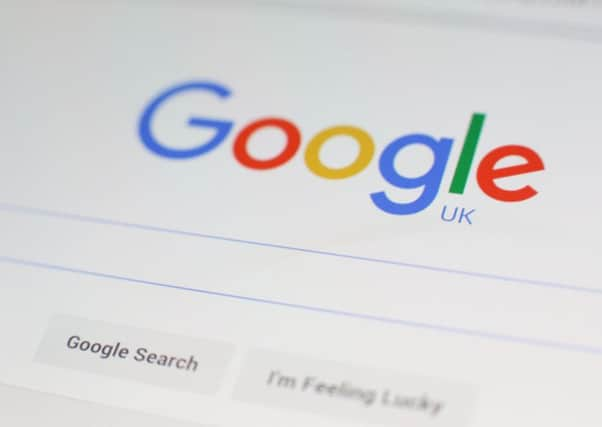Google fined record £2.1bn for breaking EU competition rules


The European Commission said the tech giant had abused its market dominance as a search engine by handing an “illegal advantage” to its comparison shopping operation.
Commissioner Margrethe Vestager said: “Google has come up with many innovative products and services that have made a difference to our lives.
Advertisement
Hide AdAdvertisement
Hide Ad“That’s a good thing. But Google’s strategy for its comparison shopping service wasn’t just about attracting customers by making its product better than those of its rivals.
“Instead, Google abused its market dominance as a search engine by promoting its own comparison shopping service in its search results, and demoting those of competitors.”
• READ MORE: Facebook fined £94m over WhatsApp user data claims
The watchdog launched an investigation into Google Shopping seven years ago amid complaints it gave the service a prominent position on the internet search engine, while rival services were demoted.
Google now has 90 days to stop the practice or face a penalty of up to 5 per cent of the average daily turnover of the firm’s parent company, Alphabet.
Vestager added: “What Google has done is illegal under EU antitrust rules. It denied other companies the chance to compete on the merits and to innovate.
“And most importantly, it denied European consumers a genuine choice of services and the full benefits of innovation.”
Google said: “When you shop online, you want to find the products you’re looking for quickly and easily.
Advertisement
Hide AdAdvertisement
Hide Ad“And advertisers want to promote those same products. That’s why Google shows shopping ads, connecting our users with thousands of advertisers, large and small, in ways that are useful for both.
“We respectfully disagree with the conclusions announced today. We will review the commission’s decision in detail as we consider an appeal, and we look forward to continuing to make our case.”
Meanwhile, the group has said that it will stop scanning the emails in users’ personal Gmail accounts to target them with personalised advertising.
Companies that pay for the tech giant’s G Suite of products, including Gmail, Calendar, Docs and Sheets, have never had their messages scanned for advertising purposes, and Google said its free email package will now follow suit.
“This decision brings Gmail ads in line with how we personalise ads for other Google products,” wrote Diane Greene, senior vice-president of Google Cloud in a blog post.
“Ads shown are based on users’ settings. Users can change those settings at any time, including disabling ads personalisation. G Suite will continue to be ad free.”
Gmail has more than 1.2 billion users, and the company said it would “keep privacy and security paramount as we continue to innovate”.